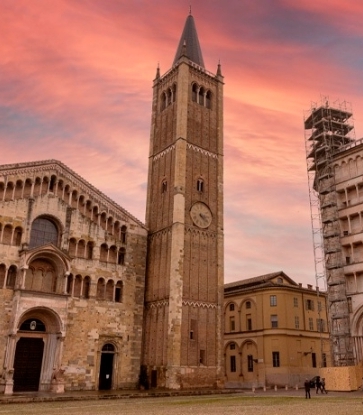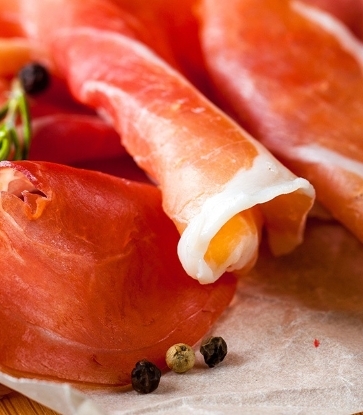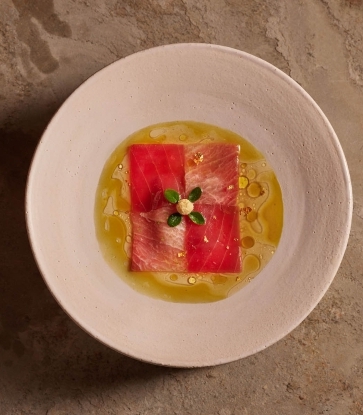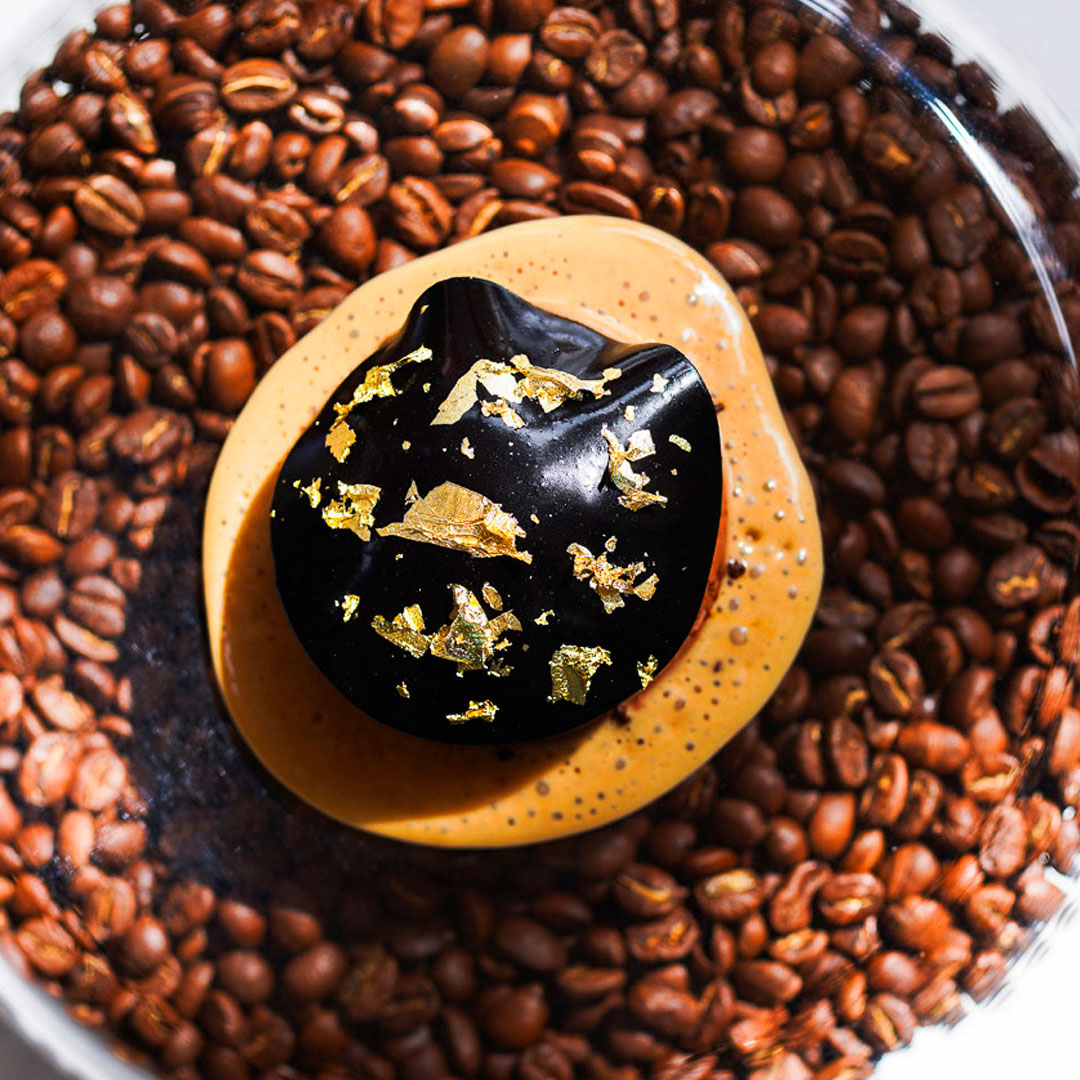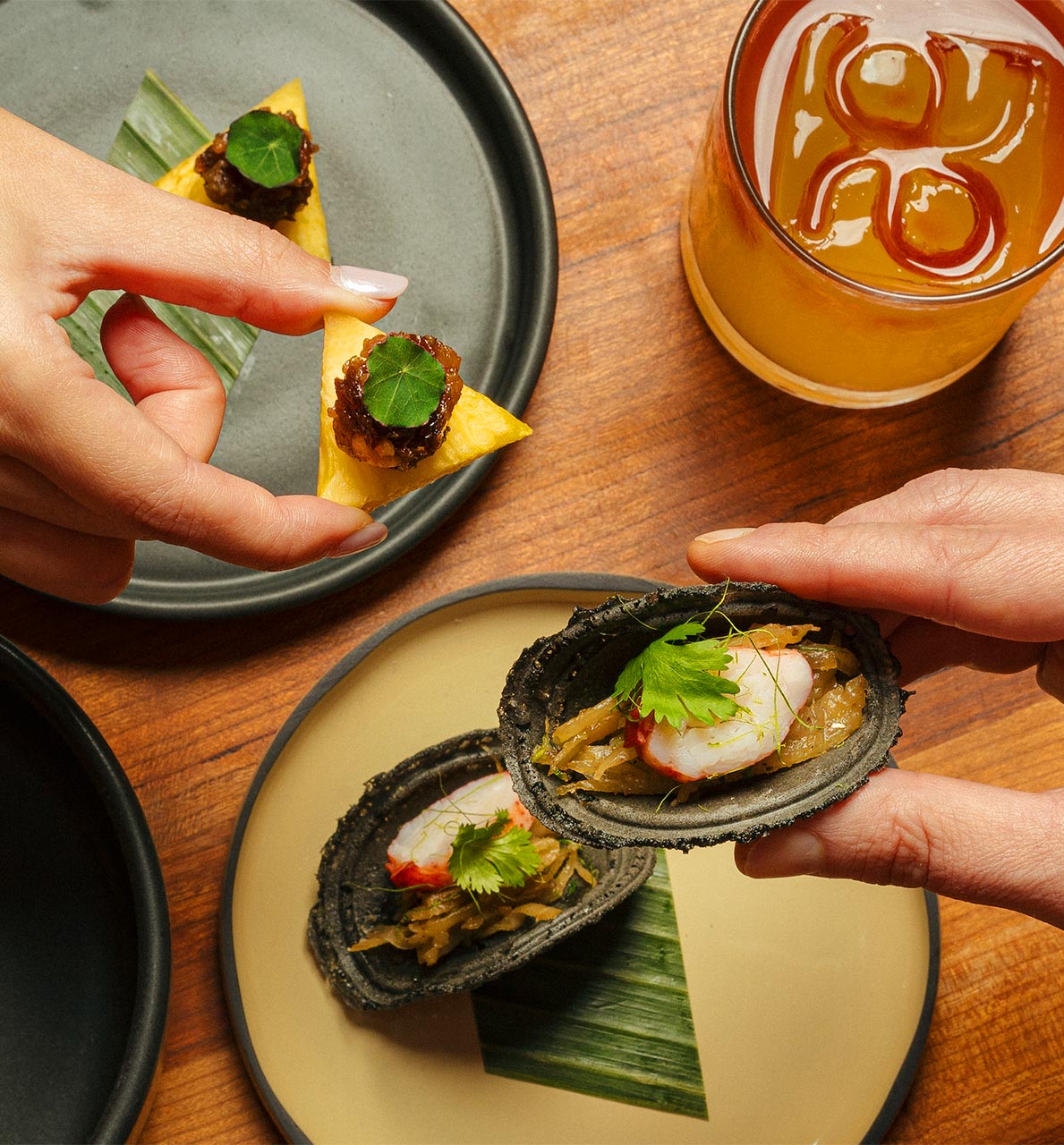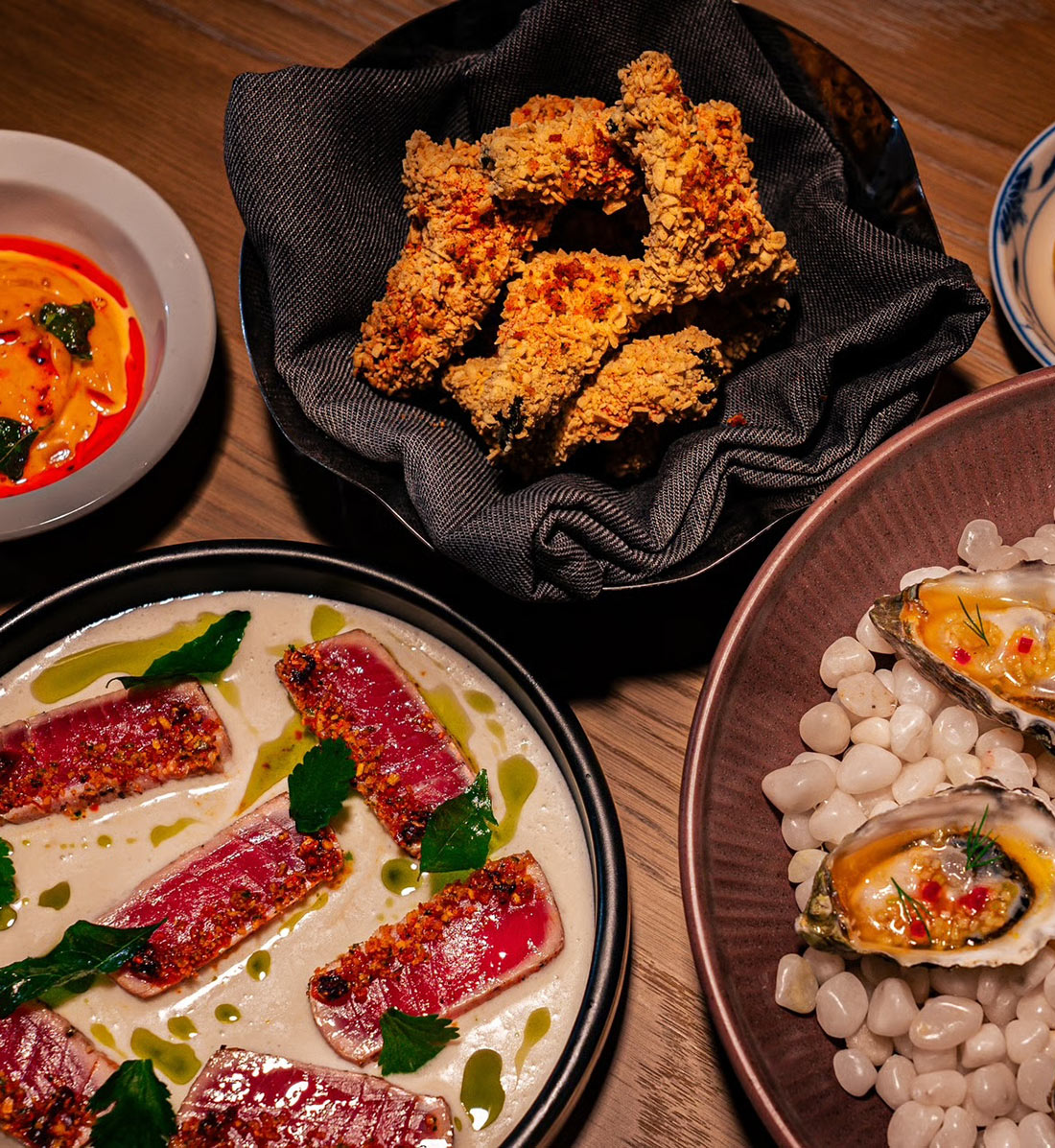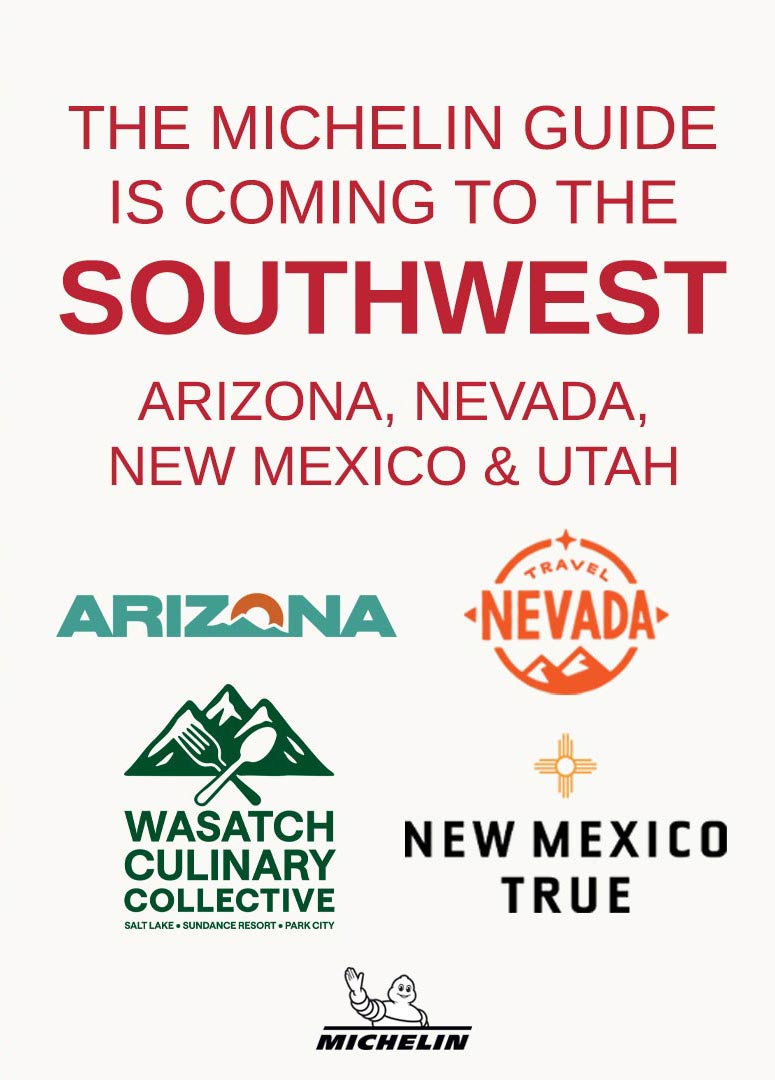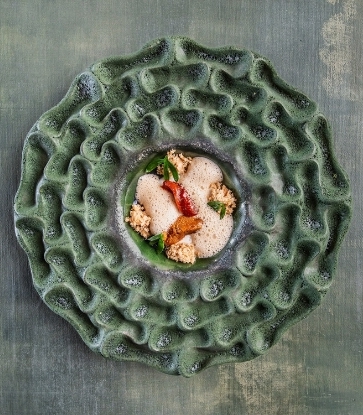Congratulations to Telly Justice of HAGS, and the 2023 MICHELIN Guide New York Young Chef Award Winner, sponsored by Rémy Martin!
Growing up, Justice never thought she would be a chef. The Philadelphia native wanted to be a writer, musician, or even a tattoo artist. After ingratiating herself within the queer community in New York, however, she realized the significance of bringing people together with food.
After spending several years obsessing over cook books, visiting farms (some worms may have been eaten during this time), and working in fine dining establishments, the queer chef has found herself in love with cooking.
Now, the award winner is all about mentorship and helping the next generation of queer cooks. In celebration of her new accolade, we sat down with Justice on why mentorship is her main motivator, why it's a pivotal time in New York's food scene right now, and everything in between. Bon Appétit!
What inspired you to become a chef?
I didn't grow up with food as a special interest. Honestly, I was hoping to be a writer or a musician. Maybe a tattoo artist. In my late teens, I left my home town of Philadelphia for the low country South. I wanted to drastically change my life—I wanted to see a bigger world than I'd known.
I quickly realized I was seriously lacking in friendships, support systems, and a community. I was lonely and intimidated being out in a new place. Pop up vegan markets organized within the DIY punk community, Food Not Bombs gatherings, and Queer potlucks kept me nourished and plugged me into an exciting new path. I quickly learned the significance, and emotional potency, of communing over food. Feeding people gave me a purpose, something to contribute in a new place. I realized then that I wanted to center myself in cooking.
How has your relationship with cooking changed as you progressed with your career?
Initially, I started a little ideological and naive. I had a gilded image of what cooking could mean to people, and that image was disrupted by the reality of professional cooking. I didn't take to professional kitchens easily. I struggled to access meaningful mentorship, and I bounced from kitchen to kitchen trying to find "my place". It felt illusive. I spent a lot of my line cooking years obsessing over cook books, scouring food science texts, visiting farms and talking about seeds, dirt and bugs. I met fishermen that believed the earth was flat, and I bartered with an Appalachian guy for wild ducks full of buckshot. One time, a forager convinced me to eat worms (don't do it). I spent time in a candy kitchen, a butchery, fine dining establishments, and a vegan anarchist cafe. I was just searching, and learning. I built exactly the kind of resume that any chef would see as a 'flight risk'.
Eventually, that weird career journey brought me back to myself. I feel closer now to that scrappy cook I was in the early 2000's—cooking just to make people feel cared for. And I grow more and more in love with cooking everyday.
What motivates you in the kitchen?
Mentorship. Mentorship is everything to me because it was so hard for me to find in my own career—especially being surrounded by such bright and talented Queer cooks at HAGS. I want them to benefit from the trade secrets and learned skills I had to fight too hard to acquire without having to compete.
How would you describe New York's food scene?
It feels like a really monumental time to be cooking in New York. There is a changing of the guards amongst the established fine dining scene. New faces, names, and cuisines are replacing the old. New neighborhoods are bubbling forward and drawing long overdue attention towards their incredible restaurants. Pop up chefs are doing some of the most fearless food work in the city. And there is a casual food revolution going on that feels more interesting than ever before. It's really exciting to watch. New York will always be, in my opinion, the most interesting food city in the world. And now, more than ever, it needs folks going out and supporting the young, adventurous, ambitious, and diverse spots that make this city the treasure it is.
What do you have for breakfast?
Today I had an everything bagel—not toasted—with scallion, cream cheese, and a slice of tomato. My bodega order is sausage, egg, and cheese with avocado on a roll. But, every once in a while, I stop in at Murphy's on 9th street for a couple beef patties. For me, it's essential that I can walk and eat my breakfast between my apartment on the LES and HAGS in the East Village. There are some really great options along the way, so I'm spoiled for choice!
How do you utilize seasonal ingredients?
I learned from chef Linton Hopkins that if you want to support a farmer, ask them what they want you to buy. If the broccoli is bolted, buy it all and figure out how to use it. Buy the blemished stuff. Buy weeds. Buy the stuff you could get cheaper, like onions, citrus, and herbs at the higher cost a farm will charge. Don't quibble over price. Pickle, preserve, and plan for less productive seasons. Build relationships and make those relationships the back bone of your sourcing. Doing things this way is harder, for sure. But it's also so much more fulfilling, and I couldn't imagine doing it a different way.
Do you cook at home, or do you leave work at work?
I don't cook at home as much as I'd like. Mostly it's because my studio apartment kitchen is the size of a match book.
Favorite food-related show, book, program, etc?
I don't watch much food related tv, but I gorge on cookbooks and food writing. I just finished reading "Burn the Place" by Iliana Regan, and I loved it. The first cookbook I ever freaked out about was "The Veganomicon". The influence of which definitely still pushes through my cuisine today. The books I grab most frequently are by Harold McGee, it'd be an absolute dream to meet him one day.





